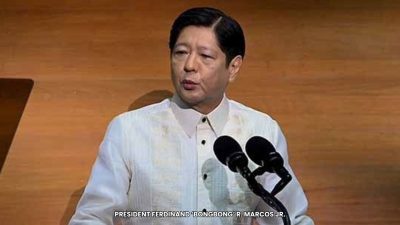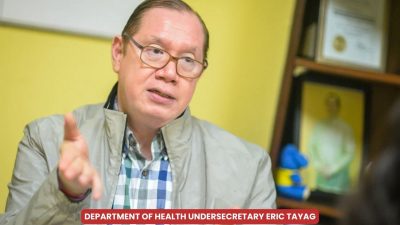By Junex Doronio
MANILA— The House of Representatives on Tuesday (26 November 2024) launched a high-stakes investigation into soaring food prices, smuggling, price manipulation, and hunger—systemic challenges that have left millions of Filipinos struggling to access affordable and secure food.
The Murang Pagkain Supercommittee—formed under House Resolution (HR) No. 254 introduced by Speaker Ferdinand Martin G. Romualdez—held its first hearing, bringing together five key committees tasked with identifying gaps in government programs and holding those responsible for market abuses accountable.
The supercommittee is composed of the Committees on Ways and Means, Trade and Industry, Agriculture and Food, Social Services, and the Special Committee on Food Security.
Albay Second District Rep. Joey Sarte Salceda, chair of the Ways and Means Committee and lead chair of the supercommittee, opened the inquiry by emphasizing the joint panel’s crucial role.
“The House of Representatives, under the leadership of Speaker Ferdinand Martin G. Romualdez, has mandated [this inquiry] to address smuggling and price manipulation of basic goods and essential commodities with the end of achieving zero hunger and promoting food security, along with social protection,” Salceda said.
Acknowledging the committee’s far-reaching responsibilities, he added, “Laws are in place to guarantee that every Filipino family has food on their tables, yet this is still a dream for many. We want to uncover the gaps that we need to plug to achieve this goal, and if needed, the personalities that should be made accountable for making this goal difficult to achieve.”
Iloilo 4th District Rep. Ferjenel Biron, chair of the Committee on Trade and Industry, highlighted local successes such as the creation of the Clark National Food Hub and efficient public market systems in Iloilo.
“These projects bear witness to what we can do if we are able to correctly identify the problem; and what we hope to replicate throughout the country,” Biron said.
Quezon 1st District Rep. Mark Enverga, chair of the Committee on Agriculture and Food, stressed the importance of recent legislative efforts to combat agricultural abuses.
“Just last September 26 of this year, the President signed Republic Act No. 12022 or the Anti-Agricultural Economic Sabotage Act, which seeks to eliminate rampant agricultural smuggling, hoarding, profiteering, cartelizing, and other acts of market abuse,” Enverga said.
He also pointed to the need for amending the Rice Tariffication Law to strengthen the Department of Agriculture’s ability to stabilize rice prices and regulate supply.
“Addressing these unfair business practices would lead us to a food- and nutrition-secure nation and, eventually, help mitigate hunger, which is the ultimate goal of the Honorable Speaker Martin Romualdez,” Enverga said.
Other leaders of the supercommittee emphasized the broader implications of food insecurity.
Nueva Ecija 3rd District Rep. Rosanna “Ria” Vergara, chair of the Social Services Committee, emphasized the devastating impact of natural disasters on the agricultural sector.
“In our country, we have been hit not once, but more than four times by massive typhoons. So many of our fellow Filipinos have lost lives. The devastation to our agricultural and fishery sectors is in the billions. These disruptions are out of our control. With how we respond, this we can control,” Vergara said.
Nueva Vizcaya Rep. Luisa Lloren Cuaresma, chair of the Special Committee on Food Security, framed food security as a fundamental human right.
“Today, we lay the foundation for the work that lies ahead. We will define the scope of our collaboration, set our priorities, and map out a path for collective action,” she said.
“But let us always keep sight of the core principle that brings us here: every person has the right to be free from hunger and to have access to the nourishment necessary for a healthy and fulfilling life,” Cuaresma added.
The supercommittee presented data highlighting the challenges Filipinos face in accessing affordable food.
According to the Philippine Statistics Authority, food accounts for the largest share of household expenditures, with rice being the primary cost driver.
“Food inflation has only decelerated recently,” Salceda said in his presentation. “A low current rate of inflation does not mean prices are low; what people feel is cumulative inflation… Food prices are still at elevated levels.”
Salceda underscored the severe impact of high food prices on the most vulnerable populations.
“Farmers are hungrier than non-farmers,” Salceda said, citing findings from the World Food Programme that nearly half of agricultural households experienced income loss and reduced food access.
The probe focuses on creating policies to stabilize food prices, curb smuggling, and uplift the agricultural sector.
Stakeholders and lawmakers alike have expressed hope that this initiative will serve as a turning point in the nation’s fight for food security.
Ia/mnm







